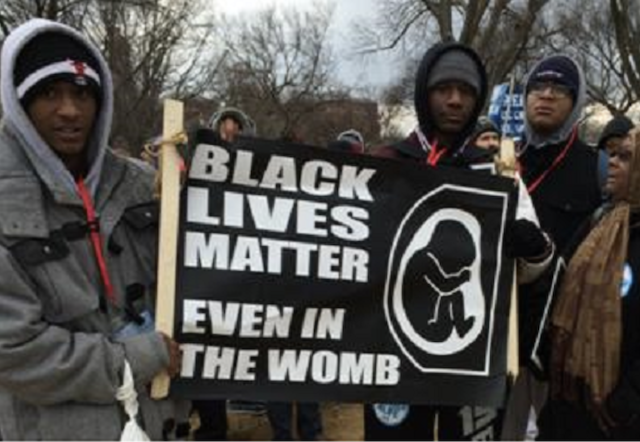African American leaders urged the U.S. Supreme Court to recognize how abortion hurts the black community in an amicus brief filed ahead of an important abortion case.

The Daily Wire reports the brief represents the voices of prominent African American pro-life leaders, including Ryan Bomberger, Alveda King, the niece of Dr. Martin Luther King, Jr., Dean Nelson, Catherine Davis, Stacy Washington, Walter and Lori Hoye and Day Gardner.
They asked the high court to uphold a Louisiana law that requires doctors who do abortions to have hospital admitting privileges for patient emergency situations. A pro-life, African American Democrat lawmaker, state Rep. Katrina Jackson, sponsored the legislation. The Supreme Court is scheduled to hear the case, June Medical Services v. Gee, in March.
Citing the poor treatment of black women and their unborn babies, the pro-life leaders argued that the abortion industry has “a long history involving unqualified and uncredentialed abortion providers disproportionately harming black women,” the report states.
They pointed to the horrors uncovered during the prosecution of Philadelphia abortionist Kermit Gosnell less than 10 years ago. Louisiana lawmakers passed the hospital admitting privileges law in response to the Gosnell case.
For years, Gosnell subjected primarily minority women to horrific conditions inside his abortion facility. According to the Grand Jury report, his treatment was racist as well.
“… white women were attended to by a doctor and black women were pawned off on clueless untrained staffers,” the investigation found.
“A nineteen-year-old girl was held for several hours after Gosnell punctured her uterus. As a result of the delay, she fell into shock from blood loss and had to undergo a hysterectomy,” according to the report.
Another woman, a refugee named Karnamaya Mongar, died as a result of Gosnell’s shoddy practice.
“These gruesome deaths are part of a long history involving unqualified and uncredentialed abortion providers disproportionately harming black women,” the African American leaders stated in their brief. “By requiring admitting privileges, [Louisiana] also created a means for reports about individual doctors to be checked against a national database — for the benefit of all patients, of all races, equally.”
They told the Supreme Court that the abortion industry targets black women and their unborn babies for abortions.
They wrote:
“The struggle for racial equality is not over. The black community experiences a disproportionate share of abortions, often from doctors that do not have the same credentials as those who perform other forms of surgery. Until Act 620, Louisiana’s abortion clinics were exempt from the admitting privileges requirement that applies to other outpatient and ambulatory surgical centers in the state. This disparity is significant to black women, who make up the majority of abortion clinic patients and thus bear most of the known risks of abortion in Louisiana. These known risks are life-threatening to mothers.”
It is telling that abortion activists, who claim to fight for women’s health, are challenging a law to protect women’s health by ensuring abortion facilities are prepared to treat emergency complications.
As the African American leaders noted in their brief, “Ensuring continuity of care is especially important to black women, who continue to face disparities in healthcare quality.”
The abortion facility at the center of the case, Hope Medical Group, has a troubling record. In December, a Fifth Circuit Court ruling indicated the abortion facility may have covered up the sexual abuse of young girls and one of its abortionists may be performing abortions that lead to second-trimester babies being born alive.
In November, the Louisiana Department of Justice announced suspicions about alleged criminal activity that may have happened at the Hope Medical Group. It accused the Hope Medical Group of hiding evidence of criminal and professional misconduct from the U.S. Supreme Court as it challenges an abortion clinic regulation law.
In 2010, state health department officials said they found “significant health and safety risks to clients” and recommended that its license be revoked; but a judge blocked the state from closing the facility.
Written by Micaiah Bilger for Life News ~ January 8, 2020

